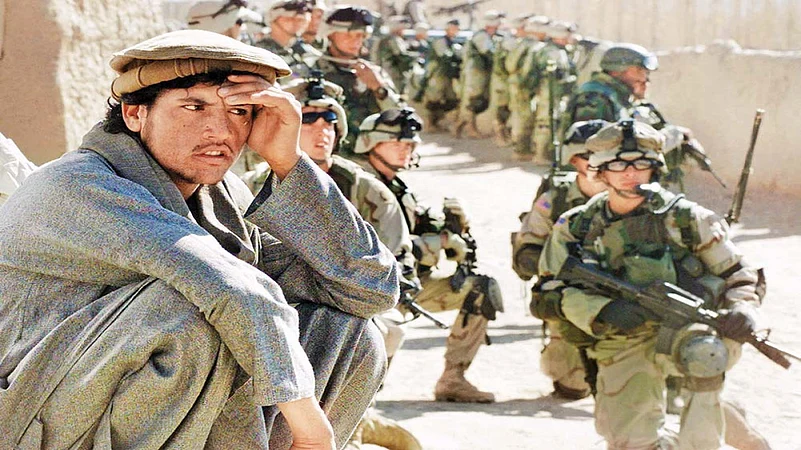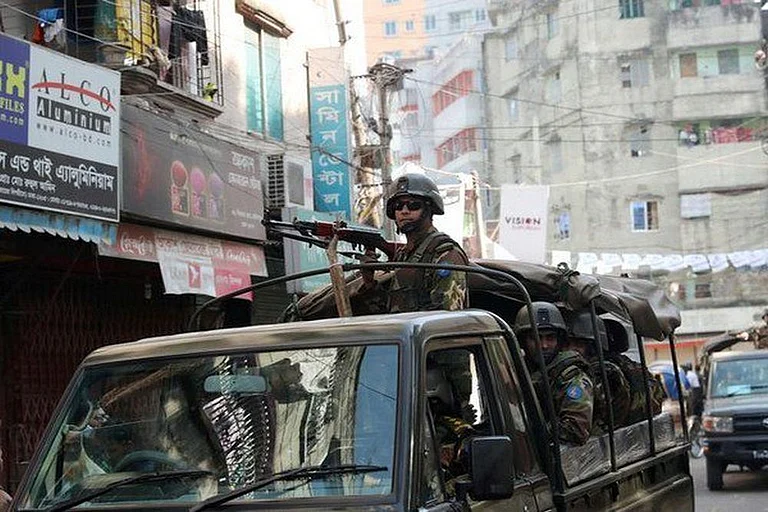With the United States’ hasty withdrawal from Afghanistan minus a politically negotiated settlement between Kabul and the Taliban, the Afghan conflict has entered a crucial phase. Since the beginning of the US and Nato forces withdrawal in May, the security situation is constantly deteriorating. The Taliban’s rapid territorial gains have exposed the Afghan National Defense and Security Forces’ (ANDSF) inability to defend Afghan territory. As a result, the Taliban’s lightning offensive over the past ten days has taken them beyond their traditional strongholds in the northern and western parts of the country. They now claim to control 90 per cent of Afghan soil. Contrary to their initial commitments, the Taliban have captured most of the 34 provincial capitals, including Faizabad, the capital of Badakhshan in the north, which was traditionally an anti-Taliban stronghold. Additionally, over the last month, it has successfully seized most of the 14 official Afghan international border crossings, including six dry ports.
As the Taliban mops up the remains of its total military victory, last-ditch diplomatic efforts to avoid a civil war and find a peaceful settlement have all but ceased. The announcement of the Troika Plus meeting comprising the US, China, Russia and Pakistan on August 11 in Doha had raised some hopes of reviving the moribund intra-Afghan peace talks. However, the uncompromising stands of the Ghani government and the Taliban on one hand and the waning leverage of other participating states on the other meant chances of a breakthrough was limited in the first place.
Pakistan has played a key role in facilitating the peace deal between the US and the Taliban. Islamabad has been calling for a result-oriented intra-Afghan dialogue for a peaceful power transition in Kabul. Despite some usual unfounded criticism over its position in the Afghan crisis by the Kabul government, Pakistan’s constructive role in bringing the Afghan Taliban to the negotiating table has largely been acknowledged by the international community.
However, that appreciation is accompanied by additional, unrealistic expectations based on Islamabad’s perceived leverage over the Taliban. Pakistan had managed to exercise some influence over the Taliban when they were equally in need of some legitimacy and brought them to the table. Unfortunately, the unconditional US withdrawal without a peace deal has removed a major pressure point for the Taliban to negotiate and have jeopardised the sustainability of existing gains.
In view of the Taliban taking over Kabul and establishing itself as the dominant force in Afghanistan, chances of a political settlement, offering a collective regional security formula have all but vanished. Regional stakeholders are scrambling to secure bilateral security assurances. China most recently has hosted a high-level Taliban delegation and has secured a commitment to crack down on the East Turkestan Islamic Movement (ETIM). Bilateral outreach by important regional actors offers the Taliban a sense of desired political legitimacy.
Amidst the Taliban takeover of Afghanistan and the complete meltdown of the Afghan government and the collapse of its armed forces, Pakistan stands as the most vulnerable country that is likely to face the major brunt of the crisis. One of the major challenges faced by Islamabad is that while the Afghan crisis is inherently a foreign policy issue, it has an overriding domestic angle—the two cannot be treated separately. Any decisions and action on Afghan foreign policy front will have direct consequences at the domestic level. If the situation further deteriorates in Afghanistan, it will not just have a ripple effect but may well create waves of instability inside Pakistan. Especially, already troubled border areas will face the worst spill-over effects.

Since May this year, terrorist events have steadily increased in Pakistan, involving significant civil and military causalities. In the past two months alone, 167 terrorist attacks have been reported in the border areas of Khyber Pakhtunkhwa and Balochistan provinces. While fencing of the border has mitigated the risk to a certain extent, it cannot completely stop illegal infiltration, given the rugged terrain. Potential refugee influx will add to Islamabad’s economic and security challenges. Pakistan has already demanded a dignified return of Afghan refugees and has expressed its inability to host more; it has also called for establishing refugee zones inside Afghanistan. However, it will be difficult to sustain that position if an estimated two-three million additional refugees gather on Pakistan’s border. Catering to them even on the border would require enormous financial resources, with huge security implications.
On the security front, Afghanistan’s military takeover by the Taliban is likely to revive domestic terrorist organisations like the Tehreek-e-Taliban Pakistan (TTP) and would spur the sleeper cells of other transnational terror outfits, including ISIS and Al Qaeda. Pakistan’s biggest security challenge will come in form of a more strengthened and tactically advanced TTP that has over 6,000 fighters based in Afghanistan. It has already begun launching cross-border attacks from Afghanistan. TTP has started asserting its new approach—a clear departure from its previous policy, which was largely based on its objective to impose its version of Sharia law in Pakistan. It did not harbour any separatist designs. But in a recent interview with CNN, TTP chief Nur Wali Mehsud reiterated that his group will continue its “war against Pakistan’s security forces” and shared his bold new vision to “take control of the border regions and make them independent”. Through this new, irredentist approach, TTP is trying to win support from elements on both sides of the border who seek to invalidate the status of the Durand Line as an international border. Additionally, the very fact that the TTP chief, who is a specially designated global terrorist by the US and sanctioned by the UN as well, was given airtime on CNN for an interview is indicative of the evolving international narrative. Pakistan is likely to witness more international promotion of the TTP narrative in the coming days.
It is worth emphasising that the situation in Afghanistan is a subset of broader regional security dynamics and is greatly influenced by the geopolitical agendas of regional and extra-regional powers. While there is a convergence of interest among great powers, including China, Russia and the US, to stabilise Afghanistan, their approach is not completely insulated from the impact of regional competition and great power rivalry. Therefore, there is a great risk of Afghanistan once again becoming a hub of regional proxy wars.
In recent months, Pakistan has been very vocal in calling out Indian involvement in using the Afghan territory to carry out terrorist activities against Pakistan and has described this as a major red line in its future engagements with the country. Similarly, the divergence between the US and China was visible when the US removed the ETIM from the US terrorist list, whereas China perceives it as a major terrorism risk. The recent attack on Chinese engineers working on the Dasu hydropower project in Pakistan underscores the complexity of the situation. The announcement by China and Pakistan about taking joint action against any terrorism spillover from Afghanistan can be seen in the context of evolving regional alliances.
Finally, peace in Afghanistan holds the key to Pakistan’s desired pivot to geo-economics from geopolitics. The whole idea of regional connectivity and trade is dependent on a peaceful resolution of the Afghan crisis. On its part, Pakistan has exhibited greater flexibility and invested heavily in Afghanistan’s peace process. Time and again, Pakistan has called for a shared role and responsibility as the Afghan situation will determine not only Pakistan’s but the entire region’s future trajectory.
***
The Human Cost
2,448 American service members killed in Afghanistan
3,846 US contractors
66,000 Afghan national military and police
1,144 Other allied service members, including from Nato member states
47,245 Afghan civilians
51,191 Taliban and other opposition fighters
444 Aid workers
72 Journalists
(This appeared in the print edition as "Taliban Here And Across The Khyber")
(Sitara Noor is a senior research fellow at the Centre for Aerospace & Security Studies, Islamabad. Views are personal)





















